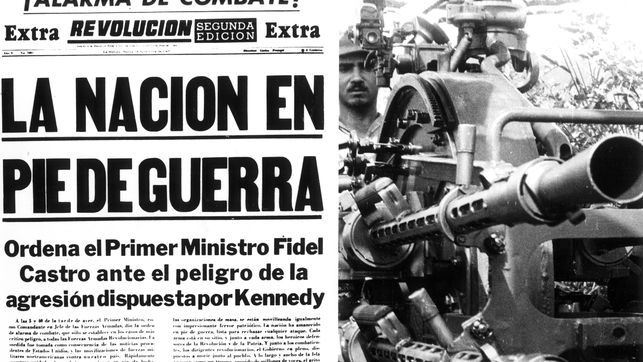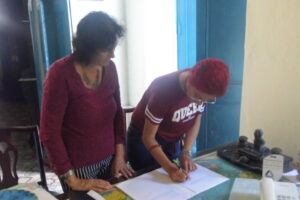When the world was on the brink of a nuclear war.

Sixty-two years ago, precisely in October, the world was on the brink of a nuclear war and the Insular Caribbean region, specifically Cuba, would be the scene of the conflict.

Sixty-two years ago, precisely in October, the world was on the brink of a nuclear war and the Insular Caribbean region, specifically Cuba, would be the scene of the conflict with weapons that, in addition to massively destroying the planet’s living beings, cause serious environmental damage.
The defense of the young Cuban Revolution against the constant threats and aggressions of the greatest imperialist power in the world led to the installation in the Antillean archipelago of long-range nuclear missiles from the former Soviet Union.
After the discovery by John F. Kennedy’s government of such an installation, the head of the White House made public his decision to impose a naval blockade on Cuba and demanded the unconditional withdrawal of the Soviet artifacts under inspection.
Thus came about the scenario and the protagonists of what is known as the October Crisis or Missile Crisis. A week of tensions, from October the 22nd to the 28th, in which it became clear that in Cuba the Cubans are the ones who decide.
«We will never give up the sovereign prerogative that within our borders we are the ones who decide… and no one else.» Said Commander in Chief Fidel Castro, then Prime Minister.
The country entered again into a state of war and from this people that does not know how to bend, thousands of combatants of the regular units and the rest of the National Revolutionary Militias were mobilized, while hundreds of people went to the hospitals voluntarily as blood donors.
«The result of these four years of harassment is a heroic people, a people more than Spartan because it is said that in Sparta the mothers would send their sons off and tell them: with the shield or on the shield. Here all the people -women, children, young and old- said to themselves: with the shield or on the shield,» Fidel declared before Cuban radio and television.
Raul Castro left for Santiago de Cuba to head the Army of the East; in the Army of the Center, his chief, Commander Juan Almeida; and Commander Ernesto Che Guevara in Pinar del Rio, to assume the leadership of the Army Corps in that western province.
In view of the dangers and consequences that a war action with nuclear weapons would bring, a negotiation took place between the Soviet and US governments, in which the latter undertook not to invade Cuba when the nuclear rockets were withdrawn from the region.
In response to that agreement, in which the Cuban government was not taken into account, Fidel signed a declaration on October the 28th, 1962. In that statement, known as the Five Points, he demanded the following:
The end of the economic blockade; the end of subversive activities; the end of pirate attacks and violations of our airspace; and the US withdrawal from the Guantanamo naval base.
The withdrawal of the nuclear rockets was carried out before the eyes of the world, but subversive activities, pirate attacks and violations of our airspace continued.
As for the economic blockade, far from ceasing, it has intensified with increasingly unjust and inhumane laws and measures. And the Guantanamo naval base, rather than being closed, is also used as a prison where the human rights of the prisoners have been tortured and violated.
Written by Ana González Goicochea.




